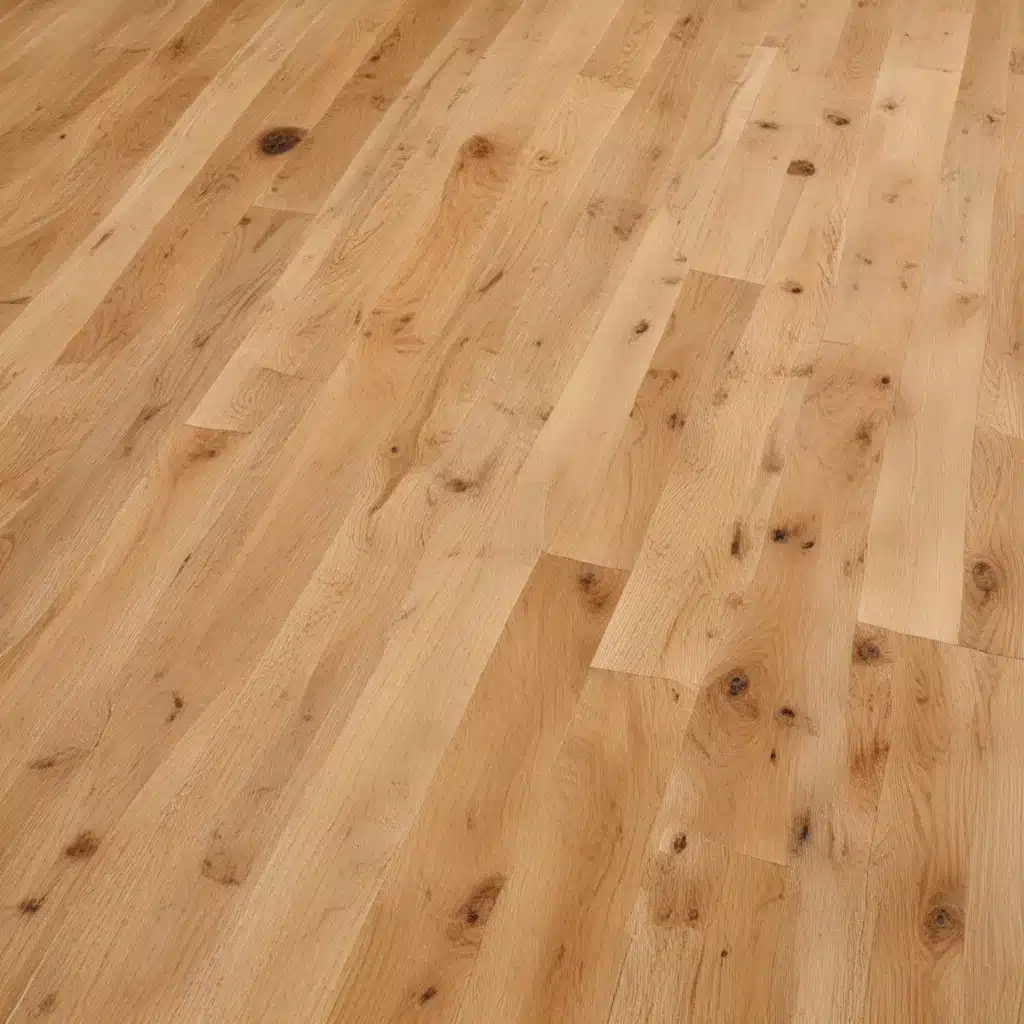
The Dilemma: To DIY or Hire a Pro?
Installing a new oak floor is a significant investment, both in terms of time and money. As a seasoned expert in oak flooring, I understand the dilemma many homeowners face when deciding between a DIY installation or hiring a professional contractor. Both options have their advantages and drawbacks, and the choice ultimately depends on your budget, skill level, and the specific requirements of your project.
In this comprehensive guide, we’ll explore the pros and cons of DIY oak flooring installation versus hiring a professional, covering critical aspects such as costs, quality, safety, and long-term performance. By the end, you’ll have a clear understanding of which path is the best fit for your needs and preferences.
DIY Oak Flooring Installation: Potential Benefits and Pitfalls
The allure of a DIY oak flooring project is understandable, especially for homeowners looking to save on installation costs. However, it’s essential to weigh the potential benefits against the risks and challenges before embarking on this endeavor.
Potential Benefits of DIY Oak Flooring Installation:
-
Cost Savings: By taking on the installation yourself, you can potentially save a significant amount compared to hiring a professional contractor. This can be particularly appealing for homeowners with a limited budget.
-
Control and Customization: DIY installation allows you to have hands-on control over the project, enabling you to customize the process to your specific preferences and needs.
-
Sense of Accomplishment: Successfully completing a DIY oak flooring project can provide a great sense of pride and achievement, especially for those who enjoy hands-on work.
Potential Pitfalls of DIY Oak Flooring Installation:
-
Lack of Expertise: Properly installing oak flooring requires specialized knowledge and skills that may be lacking for the average DIYer. Improper installation can lead to various issues, such as uneven surfaces, gaps, and premature wear.
-
Time and Effort: Oak flooring installation is a labor-intensive and time-consuming process, often taking experienced professionals several days to complete. Homeowners may underestimate the time and effort required, leading to delays and frustration.
-
Safety Concerns: Handling heavy, bulky oak planks and operating power tools can pose significant safety risks for those without proper training and experience. Improper techniques can lead to personal injuries or damage to the flooring material.
-
Finishing and Maintenance: Sanding, staining, and sealing oak floors also require specific techniques and equipment that may not be readily available or mastered by DIYers. Poorly executed finishing can result in an uneven, unsatisfactory appearance and reduced durability.
-
Potential Costly Mistakes: DIY errors during installation or finishing can be expensive to rectify, potentially costing more than hiring a professional in the long run.
Hiring a Professional Oak Flooring Contractor: Advantages and Considerations
While the DIY approach may seem tempting, hiring a professional oak flooring contractor often provides a more reliable and satisfactory outcome for your investment.
Advantages of Hiring a Professional Oak Flooring Contractor:
-
Expertise and Experience: Professional oak flooring installers have extensive training, knowledge, and hands-on experience in the proper techniques for subfloor preparation, installation, finishing, and maintenance. This expertise ensures a high-quality, long-lasting result.
-
Time and Efficiency: Experienced contractors can complete the installation process more efficiently, saving you valuable time and minimizing disruption to your daily life.
-
Proper Tools and Equipment: Professionals have access to specialized, high-quality tools and equipment that are often not available or practical for homeowners to acquire for a one-time project.
-
Warranty and Liability Coverage: Reputable oak flooring contractors typically offer warranties on their workmanship and may have liability insurance to protect you in case of any accidents or damage during the installation process.
-
Seamless Project Management: Professional contractors can handle the entire project, from measuring and ordering the materials to disposing of the old flooring and cleaning up after the installation, providing a turnkey solution.
Considerations When Hiring a Professional Oak Flooring Contractor:
-
Research and Vetting: It’s essential to thoroughly research and vet potential contractors, checking their credentials, reviews, and references to ensure they have the necessary expertise and a track record of quality work.
-
Cost: Hiring a professional oak flooring contractor will generally cost more upfront than a DIY project. However, the long-term benefits and reduced risk of costly mistakes may make it a worthwhile investment.
-
Communication and Transparency: Establishing clear communication and expectations with the contractor regarding the timeline, project scope, and any potential issues that may arise is crucial for a successful collaboration.
-
Material Selection: Work closely with the contractor to choose the right oak flooring species, grade, and finishing options that align with your design preferences and budget.
-
Disruption and Accessibility: Be prepared for some level of disruption and accessibility challenges during the installation process, as the contractor will need to move furniture and temporarily restrict access to the work area.
Comparing DIY and Professional Oak Flooring Installation
To help you make an informed decision, let’s compare the key factors of DIY and professional oak flooring installation side by side:
| Factor | DIY Oak Flooring Installation | Professional Oak Flooring Installation |
|---|---|---|
| Cost | Potential for cost savings, but risks of costly mistakes | Generally higher upfront cost, but reduced risk of errors |
| Quality | Dependent on DIYer’s skills and experience; risk of uneven surfaces, gaps, and reduced durability | Consistently high-quality installation and finishing due to contractor’s expertise |
| Timeline | Longer timeline due to DIYer’s learning curve and lack of efficiency | Faster installation timeline due to contractor’s experience and efficient workflows |
| Safety | Increased risk of personal injury and material damage without proper training | Reduced safety risks with contractor’s training and use of specialized equipment |
| Warranty and Liability | No warranty or liability coverage for DIY work | Contractor typically offers warranties and liability insurance for their work |
| Customization | Allows for customization and control over the process | Contractor can provide guidance and recommendations on customization options |
| Disruption | DIYer may need to manage disruption to daily life themselves | Contractor handles the disruption and minimizes the impact on the homeowner |
Factors to Consider When Choosing Between DIY and Professional Oak Flooring Installation
When deciding between a DIY or professional oak flooring installation, it’s essential to carefully evaluate your specific needs, skills, and resources. Here are some key factors to consider:
-
Budget: Assess your available budget and determine whether the potential cost savings of a DIY project outweigh the risks of costly mistakes or the higher upfront cost of a professional installation.
-
Skill Level and Experience: Honestly evaluate your DIY skills, experience with power tools, and comfort level with the technical aspects of oak flooring installation. If you lack the necessary skills, a professional contractor may be the safer choice.
-
Time and Effort: Consider the time and effort you can dedicate to the project. DIY installation can be very time-consuming, especially for larger areas, which may not be feasible for some homeowners.
-
Project Scope: The size and complexity of your oak flooring project can also influence the decision. Smaller, straightforward installations may be suitable for DIY, while larger or more intricate projects may benefit from a professional’s expertise.
-
Long-Term Considerations: Think about the desired lifespan and performance of your oak floors. Properly installed and maintained floors can last for decades, so it’s essential to weigh the long-term implications of your installation choice.
-
Warranty and Liability: Professional contractors often provide warranties and liability coverage, which can give you peace of mind and protection in case of any issues. DIY work typically lacks these safeguards.
-
Design and Customization: If you have specific design or customization requirements, a professional contractor can provide guidance and expertise to ensure the desired aesthetic and functionality.
Sustainable Oak Flooring Solutions
Regardless of whether you choose a DIY or professional installation, it’s crucial to consider the environmental impact and sustainability of your oak flooring project. As a seasoned expert, I recommend exploring the following sustainable options:
-
Reclaimed or Recycled Oak: Using reclaimed or recycled oak flooring is an excellent way to reduce the environmental footprint of your project. These materials often have unique character and age, adding charm to your home.
-
Responsibly Sourced Oak: When purchasing new oak flooring, look for options that are certified by reputable organizations, such as the Forest Stewardship Council (FSC) or the Programme for the Endorsement of Forest Certification (PEFC), ensuring the wood is harvested from sustainably managed forests.
-
Low-VOC Finishes: Choose low-volatile organic compound (VOC) stains, sealers, and lacquers to minimize the release of harmful chemicals into your indoor environment.
-
Underfloor Heating Compatibility: Oak flooring can be an excellent choice for homes with underfloor heating systems, as it is a durable and dimensionally stable material that can withstand the fluctuations in temperature and humidity.
By incorporating sustainable practices into your oak flooring project, you can create a beautiful, long-lasting, and environmentally responsible foundation for your home.
Conclusion: Making the Right Choice for Your Oak Flooring Project
Choosing between DIY and professional oak flooring installation is a decision that requires careful consideration of your specific needs, resources, and long-term goals. While the DIY path may offer potential cost savings, it also comes with significant risks and challenges that may outweigh the benefits.
On the other hand, hiring a professional oak flooring contractor ensures a high-quality, durable, and worry-free installation, backed by expertise, warranties, and liability coverage. The investment in a professional installation may be higher upfront, but it can pay dividends in the long run through superior craftsmanship, efficient project management, and the peace of mind that comes with a job well done.
Ultimately, the decision is yours, but I encourage you to weigh the pros and cons carefully, considering factors such as your budget, skill level, project scope, and long-term objectives. By making an informed choice, you can ensure that your new oak floors become a beautiful, sustainable, and enduring feature of your home for years to come.
For more information and expert guidance on oak flooring solutions, visit https://www.oakfloorsonline.co.uk/. Our team of professionals is dedicated to helping you make the best decision for your flooring project.


